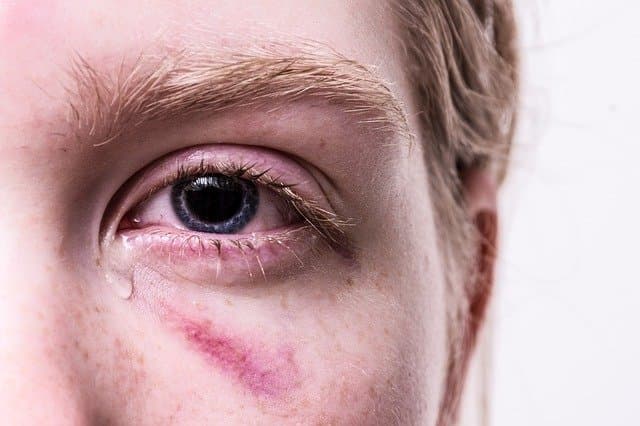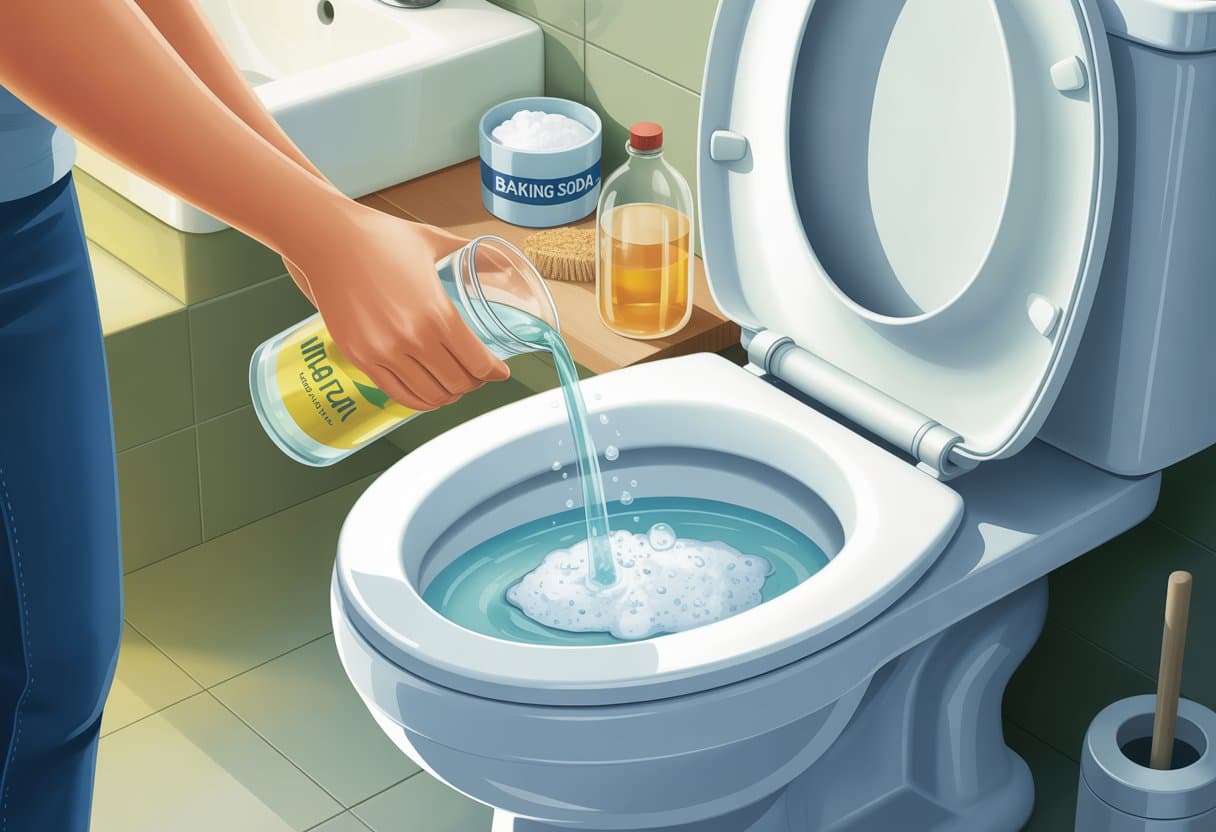Look, I get it. You're standing there with a clogged toilet at 11 PM on a Sunday, and that bottle of drain cleaner under your sink is calling your name like a siren song. Your toilet bowl is full, your plunger attempt failed, and you're wondering if drain cleaners might be the magic solution to unclog this nightmare.
The short answer? Yes, technically you can pour drain cleaner down a toilet. But should you? That's where things get messy (and not just the clog kind of messy). Before you reach for that chemical drain cleaner, let's talk about what actually works, and what doesn't, when dealing with a toilet clog emergency.

Here's what most people don't realize: those "heavy-duty clog busters" you see advertised aren't actually pushing anything through your pipes. They're basically liquid fire that eats through whatever's in their way, including your pipes, your fixtures, and probably your weekend plans when everything goes sideways. When you use chemical drain cleaners in toilets, you're dealing with a completely different drain system than your typical kitchen sink or bathroom drain.
I've seen homeowners spend $300 on a bottle of the "good stuff" only to call us three weeks later with corroded pipes that cost ten times more to repair. Not exactly the bargain they thought they were getting. These emergency plumbing calls could have been avoided if they'd understood the potential risks of using chemical drain products in their toilet tank and bowl systems.

The Real Deal About Chemical Drain Cleaners in Toilets
That marketing copy about "clog pushers"? Pure fiction.
These drain cleaners work by creating a corrosive chemical reaction that dissolves whatever's blocking your drain. The problem is, they're not picky eaters, they'll happily munch on your metal pipes, rubber gaskets, and porcelain fixtures while they're at it. Unlike products like Drano that are designed for sink drains, toilets present unique challenges that most commercial drain cleaning products can't handle effectively.
And let's talk about the elephant in the room: safety. We had a client last month who got chemical drain cleaner splashed in her eye while trying to clear a stubborn toilet clog. Three emergency room visits later, she wished she'd just called us from the start. The toilet bowl design means any cleaner you pour in can splash back when you flush, creating serious safety hazards.

Then there's hydrochloric acid (you might know it as muriatic acid). Some DIY enthusiasts swear by this stuff, but honestly? It's terrifying. The vapors alone can damage your lungs, and if it touches your skin... well, let's just say you'll need more than a band-aid. When you're dealing with a slow drain or persistent clogs in your toilet, this isn't the solution you want.
But I'm not here to completely trash drain cleaners. Some situations call for them, and when used correctly (emphasis on correctly), they can save you time and money. The key is knowing when to use a plunger, when to try a toilet snake, and when chemical drain cleaners might actually help versus making your plumbing problems worse.
Why People Love Drain Cleaners for Toilet Clogs (The Good Stuff)
They're Stupid Simple to Use (No Drain Cleaner Experience Required)
No special training required. No fancy equipment. Just open, pour, wait fifteen minutes, and flush. Compare that to snaking a drain or calling a plumber at midnight rates, I get the appeal. When you're facing a clogged toilet emergency, the simplicity of using a clog eliminator seems like the perfect solution.
Most hair and food clogs dissolve pretty quickly with the right cleaner. We're talking ten to fifteen minutes for your average bathroom sink backup. However, toilets operate differently than standard drains, and what works in your kitchen sink might not work in your toilet drain system.
Your Wallet Will Thank You (Initially) When You Use Drain Cleaners
A $10 bottle versus a $150 service call? The math seems obvious.
Drain cleaners work great on the usual suspects: hair clogs in your shower, grease buildup in kitchen sinks, and soap scum blockages. These are the bread-and-butter clogs that respond well to chemical treatment. But when it comes to toilets, the story gets more complicated because of how toilet drains are designed compared to your standard sink or shower drain.

The Not-So-Fun Reality About Clogged Toilet Drain Issues (Why We Stay Busy)
They Can't Handle the Heavy Hitters (When Chemical Drain Won't Unclog Your Toilet)
Here's something they don't put on the label: chemical drain cleaners are basically one-trick ponies. They work on organic matter, hair, food particles, soap buildup. But that toy your kid flushed? Or the mineral deposits from years of hard water? You're out of luck. When you're trying to unclog a toilet with something solid stuck in the drain, no amount of chemical cleaner will dissolve it.
Last week, we pulled a small action figure out of a toilet that had been "treated" with three different drain cleaners over two months. The homeowner spent more on chemicals than our service call would have cost. These kinds of clogs require professional drain cleaning equipment, not chemicals that can't dissolve plastic or other solid objects.
Toilets Are Weird (And Chemical Drain Cleaners Know It)
This is where physics gets annoying. Drain cleaners are heavier than water, so when you pour them into a toilet bowl, they just sit there at the bottom like a sulking teenager. They can't travel up and over that S-trap curve where your actual clog probably lives. Unlike other drains in your house, toilets have this unique curved design that makes it nearly impossible for chemical drain cleaners to reach the actual blockage.
It's like trying to shoot a basketball through a hoop by bouncing it off the floor. Technically possible, but you're fighting gravity the whole way. This is why a toilet snake or professional drain cleaning tools are often more effective than any chemical solution for toilet clogs.
The Fume Situation Is No Joke (Especially in Your Toilet Bowl Area)
Ever read those warning labels that basically say "use in a well-ventilated area or you might die"? They're not kidding.
We've responded to emergency calls where homeowners had to evacuate their bathroom because the fumes were so overwhelming. And if you've got kids or pets in the house? Those vapors sink to floor level, right where little lungs are breathing. The enclosed nature of most bathrooms makes using chemical drain products in toilets particularly dangerous compared to using them in kitchen sinks with better ventilation.
Environmental Impact (Because Mother Earth Matters)
Those chemicals don't just disappear when you flush. They end up in groundwater, soil, and eventually back in your drinking water. According to the EPA, household chemical drain cleaners are among the top contributors to residential water contamination. When you use these products in toilets, you're sending concentrated chemicals directly into the sewer system without any dilution that happens with sink drains that get regular water flow.
Your Pipes Aren't Invincible
The same heat that dissolves clogs also softens PVC pipes and corrodes older metal plumbing. I've seen 20-year-old pipes that looked like Swiss cheese after repeated chemical treatments. When you're dealing with toilet clogs repeatedly, these chemicals can cause serious damage to your entire plumbing system, not just the toilet drain itself.
And here's the kicker: continuous use actually creates more clogs. The chemicals leave a residue that builds up over time, attracting more debris. It's like putting a band-aid on a broken leg, you're just making the problem worse. This is especially true in toilets, where the bowl design can trap these residues more easily than straight-line drains.
Smart Prevention for Clogged Toilets (Because Nobody Wants to Deal with This Again)
Want to know the best drain cleaner? Not having clogs in the first place. Whether you’re dealing with toilets, sink drains, or any other plumbing fixture, prevention beats trying to unclog a mess after it happens.
Get yourself some drain strainers. These little mesh covers catch hair, soap chunks, and food particles before they become your problem. You can grab them at any hardware store for under $5. Best investment you’ll ever make. While you can’t use strainers in toilets, you can definitely prevent most toilet clogs by being mindful of what goes down the drain.
Try enzyme cleaners instead. These use good bacteria to break down organic matter without the toxic fumes or pipe damage. They work slower than chemical drain cleaners, but they’re way gentler on everything (including you). For toilets specifically, enzyme cleaners can help maintain your drain system without the risks of harsh chemicals.
Use a plunger correctly. Most people don’t realize there are different plungers for different jobs. A toilet plunger (flange plunger) works much better than a sink plunger for unclog situations. Keep one next to every toilet in your house, trust me on this one.
When to Wave the White Flag
Look, I’m all for DIY solutions when they make sense. But some battles aren’t worth fighting alone.
If you’ve got recurring toilet clogs, mysterious gurgling sounds, or water backing up in multiple fixtures, you’re dealing with something bigger than a simple blockage. These are signs of main line issues that no amount of drain cleaner will fix. When your toilet drain keeps getting clogged despite your best efforts, it’s time for professional drain cleaning services.
And honestly? If you’re even thinking about using the hardcore chemical stuff, just call us instead. We’ve got the tools, training, and insurance to handle whatever’s lurking in your pipes. Professional plumbing services have specialized equipment like rooter machines and high-pressure water jets that can clear clogs that no chemical drain cleaner could touch.
At Danika Plumbing, we’ve seen it all, from action figures to tree roots to things I can’t unsee. We serve the greater Seattle area, including Everett, Edmonds, Lynnwood, and all of Snohomish and King Counties. Our emergency plumbing services are available 24/7 because clogged toilets don’t wait for business hours.
Because sometimes the smartest DIY move is knowing when to call the professionals. Whether you need routine drain cleaning, emergency toilet repair, or commercial plumbing services, we’ve got you covered with fast, reliable service.
Ready to stop fighting with your drains? Give us a call. Your pipes (and your sanity) will thank you.



